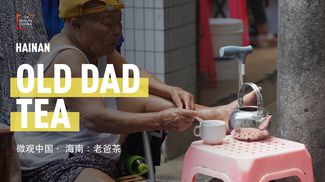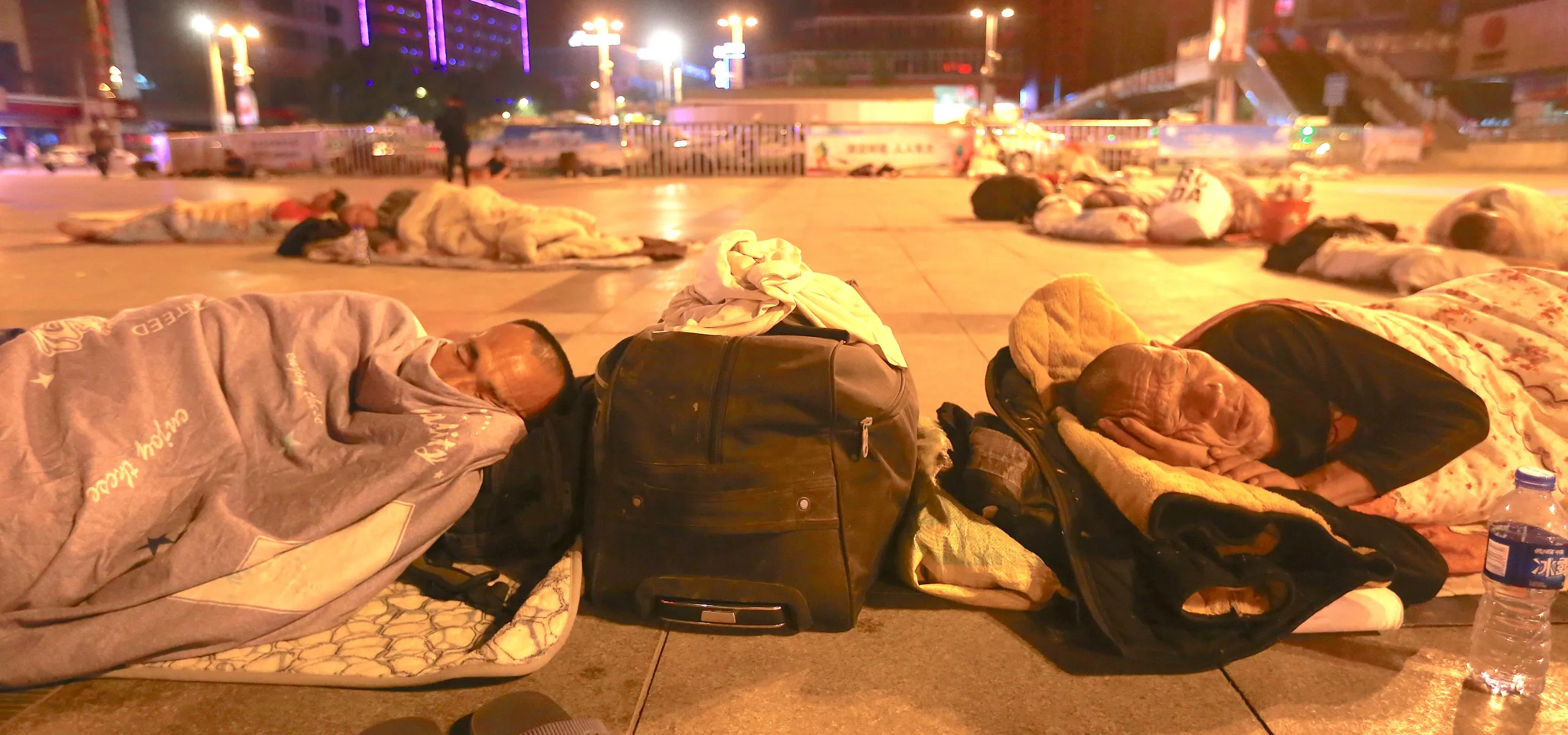From migrant workers seeking refuge to budget-conscious tourists, public sleeping in China reveals a tapestry of urban social dynamics
In the early hours of the morning, Majuqiao’s streets remain lively with bright neon lights from restaurants, internet cafes, and old-fashioned bathhouses. In a poorly lit stairwell, a man sits huddled, sound asleep, while a group of men gathers on the sidewalk in an intense game of Chinese chess, seemingly determined to spend the entire night playing.
Situated on the southeastern outskirts of Beijing, Majuqiao serves as a gathering spot for day laborers who work in the nearby Yizhuang industrial zone, where the headquarters of e-commerce giant JD.com and others are located. These laborers form the backbone of a complex factory system, taking on temporary jobs in large factories such as sorting, unloading, carrying, and cleaning. They work long shifts of up to 12 hours and, come nightfall, many remain in the area, searching for a public place to sleep and recharge—some out of necessity, some by choice.
No shelter for some
Not far from the men playing chess, a 35-year-old man surnamed Yu finds himself in a bind. With all his belongings packed into a suitcase and a backpack, he walks the streets, unsure of where to spend the night.
His choice of accommodation depends on his available cash. When he runs out of it, there is no option but to spend nights on the streets in all weathers. Once, when he dozed off by the roadside during a heavy rainstorm, he woke up to find his mobile phone missing.
A hotel isn’t an option for the right now, as he still owes 60 yuan to the last local inn he stayed at. As collateral, the owners kept his ID card—a prerequisite for staying in a hotel room in China—though Yu figures it might be cheaper to just apply for a replacement ID card for 40 yuan.
It’s difficult to find reliable numbers on the scale of homelessness in China—the definition is complicated by the country’s hukou (household registration) system, which might list a person as a resident of their hometown even when they’ve moved elsewhere decades ago and don’t intend to go back.
A 2020 paper in the American Journal of Economics and Sociology, which counted all migrant workers without a hukou in their city of residence (known in China as the “floating population”) as homeless, listed the figure at 300 million. While it’s not known how many of these individuals are literally sleeping outdoors, or spending nights in places of business like internet cafes or fast food joints, even migrant workers who have a regular place to sleep face challenges like squalid living conditions and sudden evictions, or inability to afford the deposit and down payment to rent better apartments.














